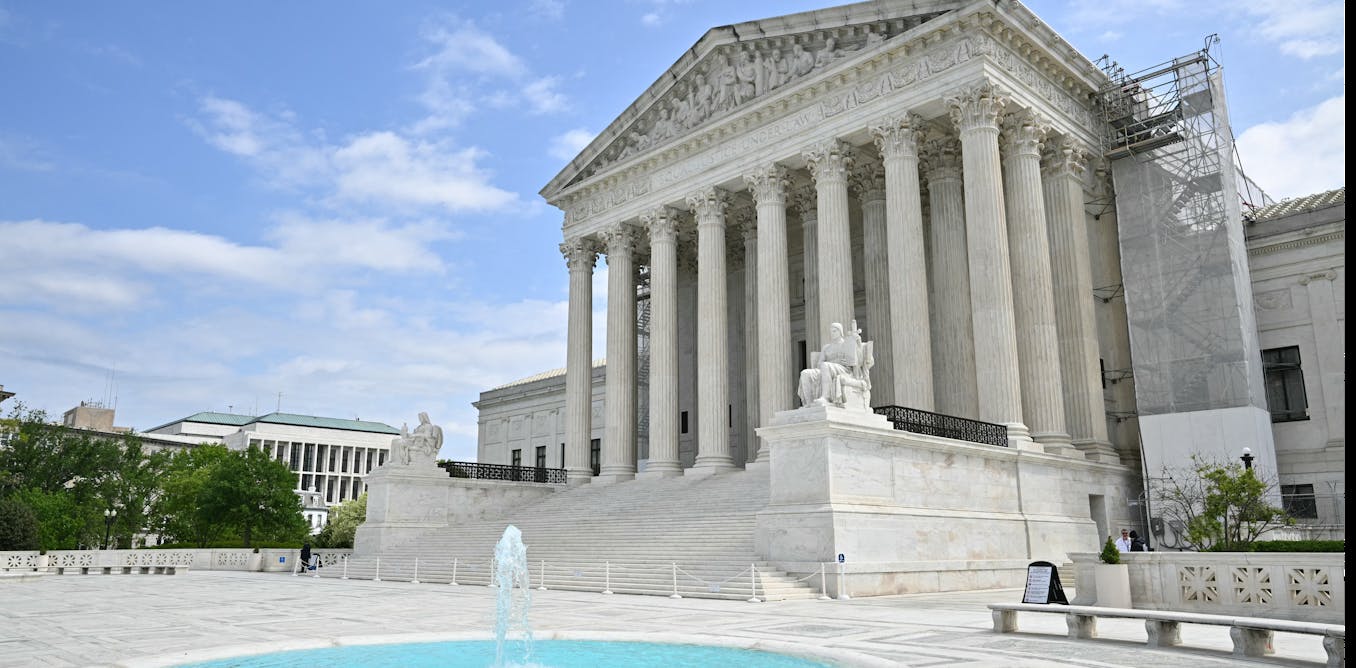Politics
Supreme Court refuses Alabama Republicans' request to stop 2nd Black voting district
The U.S. Supreme Court on Tuesday again rejected Alabama's push not to have to add a second Black district to their election map, with the justices refusing a request to halt a lower court order that outside experts will draw new districts for the 2024 elections.
The brief order did not note any dissents from the court. The state, led by Republicans, had sought an emergency stay.
In September, a three-judge federal panel found that that a GOP-drafted plan likely did not comply with the Voting Rights Act as it did not create a second district in which Black voters would likely be able to elect their preferred candidate.
The federal ruling that originally struck down Alabama's map in 2022 ordered the Legislature to draw "two districts in which Black voters either comprise a voting-age majority or something quite close to it."
About 27% of Alabama residents are Black, according to census data. Only one of its seven districts is represented by a Black lawmaker.
The state Legislature had passed their latest congressional map in late July, after the U.S. Supreme Court ruled a month earlier that the previous map violated the civil rights law.

Defenders of the now-rejected map argued they had achieved "something quite close," as the lower federal court ordered. Under that plan, Black voters comprised 39.93% of Alabama's 2nd District and 50.65% of the 7th District.
In their sharply worded opinion on Sept. 5, the federal panel disagreed.
"Law requires the creation of an additional district that affords Black Alabamians, like everyone else, a fair and reasonable opportunity to elect candidates of their choice. The 2023 Plan plainly fails to do so," U.S. Circuit Judge Stanley Marcus, U.S. District Judge Anna Manasco and U.S. District Judge Terry Moorer wrote.
There are political implications for the redistricting, as Democrats believe an additional minority district will be favorable to them, given that Black voters in Alabama favor Democrats.
Alabama Attorney General Steve Marshall, a Republican, said in a statement earlier this month that the district court ruling was disappointing but "we intend to promptly seek review from the Supreme Court to ensure that the State can use its lawful congressional districts in 2024 and beyond."
In a statement released by the American Civil Liberties Union, the plaintiffs in the suit against the original maps said, in part: "This additional representation in Congress will undoubtedly change lives, especially for the hundreds of thousands of Alabamians residing in the Black Belt who suffer from lack of healthcare access, job opportunities, and crumbling infrastructure. We look forward to a new era in our state’s history, in which power is shared and Black voices are heard.”
ABC News' Caroline Curran contributed to this report.
-

 Politics18m ago
Politics18m agoBusiness Beat: Abe Cohen new VP of Business Development for RI, Marquis Health Consulting
-

 Politics19m ago
Politics19m agoAdvocates, providers on new Nursing Home mandates – Herb Weiss
-

 Politics11h ago
Politics11h agoSupreme Court to Decide Whether Donald Trump Can Be Criminally Prosecuted
-

 Politics1d ago
Politics1d agoRhode Island Weather for April 28, 2024 – John Donnelly
-

 Politics1d ago
Politics1d agoThe Promised Land: a short story by Michael Fine
-

 Politics2d ago
Politics2d agoPresident Of Papua New Guinea Tells President Joe Biden: Our Nation Doesn't Deserve Being Labeled Cannibals
-

 Politics2d ago
Politics2d agoTrump trial reveals details about how the former president thinks about, and exploits, the media
-

 Politics2d ago
Politics2d agoTrump’s immunity arguments at Supreme Court highlight dangers − while prosecutors stress larger danger of removing legal accountability



























